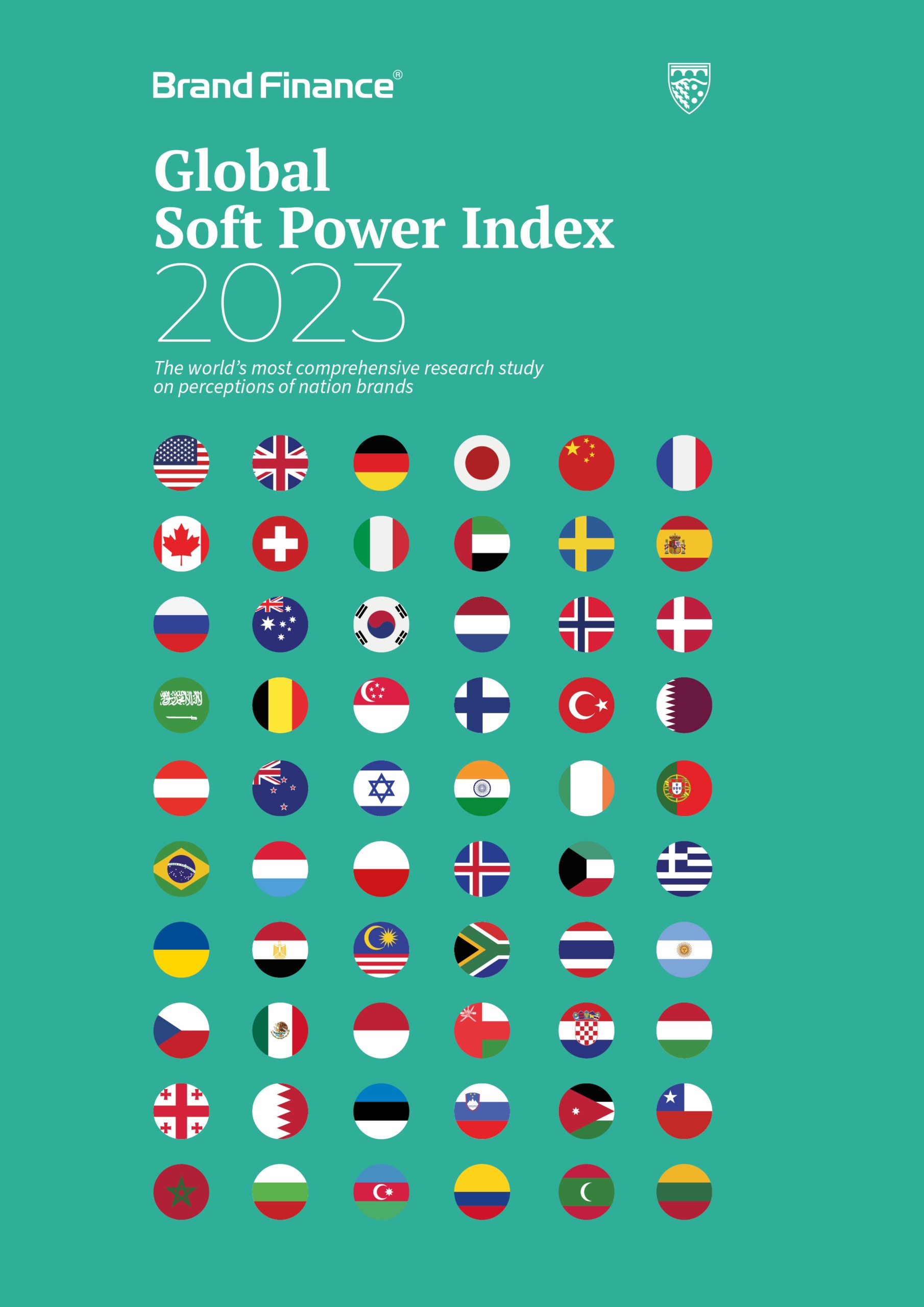This article was originally published in the Global Soft Power Index 2023.

The Global Soft Power Index uses a balanced scorecard approach to evaluating nation brand perceptions which recognises that Soft Power encompasses elements of visibility, reach, weight. Soft Power is more than reputation alone.
Of course, Reputation is important. Soft Power aims to impact attitudes and (ultimately) behaviour through attraction or persuasion rather than coercion, and for a nation to be attractive and a role model for others, its overall Reputation must be as positive as possible.
But that is often not sufficient. There are plentiful examples of nations with positive Reputations but somewhat limited Soft Power, beyond very specific arenas/pillars or in neighbouring countries.
We also emphasise the importance of Familiarity and mental availability – if you have a good Reputation you want as many people as possible to know about it, and to have frequent reminders and demonstrations of your qualities. Our third KPI is Influence – the perceived presence and impact that your nation has in other countries, overall or in specific areas.
Familiarity and Reputation are correlated with Influence, but the relationships between these three KPIs (and their underlying drivers) is complex, and a balanced Soft Power strategy should always aim to fire on all cylinders.
Familiarity underpins Influence

It is hard to have much Influence and thus Soft Power if you are a small, geographically-remote, and/or relatively obscure nation.
But it is not a linear relationship – if you have a strong Reputation and widespread Influence in specific fields, you are going to be less obscure, people will visit your nation, do business with you, and absorb your culture – all of which will in turn increase your mental availability and Familiarity.
A strong Reputation takes you to the next level
Salience and Familiarity are clearly important foundations of Soft Power, but to build on that your target audiences need to see something desirable in your actions, governance, values, culture, or products. The logical argument is that a great Reputation is also necessary for a nation to grow its Soft Power base, and while that is largely true, there are some obvious exceptions.

Nations with weak Reputations do indeed generally have very limited Soft Power, even when they are relatively large and strategically ‘important’. Nigeria, India, and Brazil are good examples of nations that have considerable Soft Power potential but underperform in terms of Reputation. In Nigeria’s case this is limiting its Influence within sub-Saharan Africa (let alone beyond). Common sense says that a more positive Reputation would improve these nations’ Influence and overall Soft Power.
As the chart above shows, a great Reputation can take you a long way, if not to the very top of our Soft Power rankings. Among the top 30 nations for Reputation, all wield significant Soft Power apart from very small nations (e.g. Maldives, Iceland), and even these punch well above their weight. So while a strong Reputation may not always be sufficient to be a Soft Power heavyweight, obviously it is a key component.
Influence complements Reputation
Hence, a nation with a negative or mixed Reputation can never fulfil its Soft Power potential – but there are several examples of nations with significant Soft Power despite a Reputation that we might politely say has ‘room for improvement’.
Russia is the most obvious outlier, where sheer size, historical Influence and, arguably, hard power, combine to ensure that Russia retains Soft Power assets – but unless Russia can turn its Reputation around these are likely to erode in the medium term.
Israel, China, Saudi Arabia, UK, and USA are other examples of nations whose Soft Power rankings are not a merely a function of having a ‘perfect’ Reputation.

However, for these nations, their Reputations generally are positive – very good in many cases. Saudi Arabia, for example, may not be universally acclaimed but ranks a respectable 32nd for overall Reputation and in the top 15 for economic stability, diplomatic influence, and heritage.
Similarly, while Israel polarises opinion somewhat, its qualities are acknowledged even in relatively hostile markets (for example, Chinese respondents are negative towards Israel overall but admire its educational and scientific achievements).
The magic ingredient that translates a ‘good enough’ Reputation into strong Soft Power is Influence. Best-practice for developing Soft Power thus considers how best to improve Reputation and Influence.
Influence is not easily earned, but there are steps that nations can take to build it. Nations which punch above their weight for Influence typically have one or more of these characteristics listed in the table below.
The last two elements will be more directly impacted by the actions of nation brand marketing teams and activity – even the smallest, most remote or economically-challenged nation can undertake actions to grow its Influence. Our section on drivers analysis discusses how.


